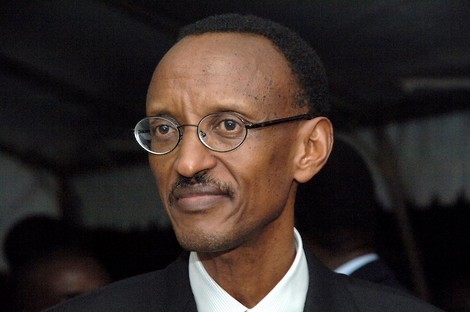Your podcast discovery platform
Curious minds select the most fascinating podcasts from around the world. Discover hand-piqd audio recommendations on your favorite topics.

piqer for: Global finds
Ciku Kimeria is a Kenyan author "Of goats and poisoned oranges" - (https://www.amazon.com/goats-poisoned-oranges-Ciku-Kimeria-ebook/dp/B00HBBWPI6), development consultant, adventurer and travel blogger (www.thekenyanexplorer.com). She writes both fiction and non-fiction focusing on African stories that need telling. She has worked on diverse pieces for various international and local publications including Quartz, Ozy, The East African etc. She has travelled to 45 countries – 16 of them in Africa. 153 countries to go and 63 territories!
"Of goats and poisoned oranges" has been extremely well received in Kenya and beyond. It tells the story of a Kenyan middle aged power couple and their complicated marriage. The novel explores issues of greed, revenge, betrayal and murder. It runs from the 1960s to 2013. It has been described as “Wicked, funny, poignant, wacky, human, a big ball of fun and danger”, “A unique and captivating book”, “Fun and intriguing”, “Impossible to put down once you start reading.”
She recently moved to Dakar, Senegal from Kenya to work on her second novel. She also works at as the Africa Communication Manager at a leading global strategy consulting firm.
She holds a B.S. in Management Science from MIT with minors in Urban Planning and International development studies.
Rwanda Stands Firm On An Import Ban Of US Second-Hand Clothing
One might wonder why a small African country's ban on imported second hand-clothes from the US is newsworthy, but the reality is that this has much more to do with it than clothes. Rwanda's recent ban on second-hand clothes from the US is more than a power-play. It reveals the dynamics of global trade in which poorer countries are almost coerced into accepting foreign imports at the expense of growing their own local industries. The poorer country usually chooses to do so, hoping that this will result in increased exports from their own country to the richer country.
The East African Community (EAC) has a partnership agreement with the US though the African Opportunity and Growth Act (AGOA) program, but this relationship is not equal with the US exporting almost seven times as much to the region as it imports.
The EAC nations are one of the most important markets for U.S. industry’s used clothing exports with direct American exports to the EAC member countries totaling approximately $24 million in 2016. U.S. imports under AGOA totaled $43 million in 2016, up from $33 million in 2015 while exports were $281 million in 2016, up from $257 million in 2015.
The US's threat to review duty-free imports from Rwanda if the country does phase out importation of US second-hand clothes has not fazed the Rwandese President Paul Kagame. Other countries in the region are also raising increasing import tariffs for second-hand clothes from the US with the aim of making their own textiles industries more competitive.
It all remains to be seen whether such moves will be in line with leading economist Ricardo Hausmann's theories on economic complexity that assert low-skill manufacturing industries such as textiles are a stepping stone for economic growth.
President Kagame said the situation leads Rwanda to make a choice between continued importation of used clothes and developing the local textile industry.
Only time will tell if the ban will have the intended growth effect in the region.
